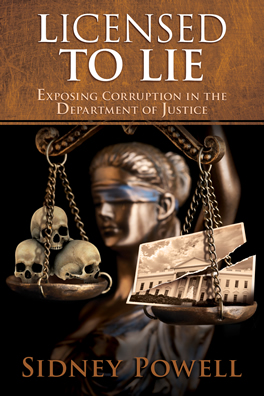DID YOU KNOW: You must SPEAK to invoke your RIGHT TO REMAIN SILENT
In a 5-4 combination of opinions, the first one authored by Justice Alito, and joined by Chief Justice Roberts and Justice Kennedy, the Supreme Court affirmed the murder conviction of a Texas defendant despite the fact the prosecutor used his silence in the face of police questioning against him at his murder trial.
Justice Thomas, joined by Justice Scalia, wrote separately to affirm the conviction, but in their view, it would not have mattered if the defendant had affirmatively invoked his right to remain silent, the prosecutor’s comments regarding his pre-custodial silence (in a police interrogation room) did not compel him to give self-incriminating testimony, and it was just fine that the prosecutor used his silence against him. Justices Breyer, Ginsburg, Sotomayor and Kagan dissented, identifying precedent that allowed a defendant to say nothing as a way of invoking his right to silence and protecting that right by prohibiting the prosecutor from commenting on it.
Investigation of a double homicide lead the police to Salinas’ home, where they found him. Quoting from Justice Alito’s opinion:
He agreed to hand over his shotgun for ballistics testing and to accompany police to the station for questioning. Petitioner’s interview with the police lasted approximately one hour. All agree that the interview was noncustodial, and the parties litigated this case on the assumption that he was not read Miranda warnings. See Miranda v. Arizona, 384 U. S. 436 (1966). For most of the interview, petitioner answered the officer’s questions. But when asked whether his shotgun “would match the shells recovered at the scene of the murder,” App. 17, petitioner declined to answer. Instead, petitioner “[l]ooked down at the floor, shuffled his feet, bit his bottom lip, cl[e]nched his hands in his lap, [and] began to tighten up.” Id., at 18. After a few moments of silence, the officer asked additional questions, which petitioner answered. Ibid. Following the interview, police arrested petitioner on outstanding traffic warrants.
So, the first of the three opinions actually ducks the question on which they agreed to take the case. Instead of addressing the issue of whether the prosecutor could comment on the defendant’s silence, it affirms the conviction on the basis that Salinas was required to speak and affirmatively invoke his Fifth Amendment right. He could not just remain silent to invoke his right to remain silent. Well, uh . . . OK.
One can’t invoke one’s right to remain silent simply by remaining silent. You must speak to assert your right to remain silent. That is at least consistent with some Supreme Court precedent, but it is inconsistent with other precedent which holds that “no ritualistic formula” is required to invoke the right and a defendant “can stand”mute.” It also defies common sense, and good law is supposed to make sense.
The second opinion, the concurrence by Thomas and Scalia is even worse for individual rights. According to Thomas and Scalia, the government should be able to argue that a defendant’s silence warrants an inference that he is guilty, and the jury should be able to consider that as evidence of guilt. That position, they admit, is inconsistent with the Supreme Court’s decision in Griffin which holds that the Fifth Amendment prohibits a prosecutor from commenting on a defendant’s failure to testify on his own behalf. In fact, they just flat out disagree with the Griffin decision. I guess that’s why we call these things the Justices write opinions..
The Breyer dissent, joined by Justices Ginsburg, Sotomayor and Kagan, cites extensive precedent, addresses the issue of the prosecutor’s comments, and would have held that the Fifth Amendment protection against self-incrimination precluded prosecutor from using the defendant’s silence in the face of interrogation against the defendant. According to the four dissenting Justices: “Circumstances, rather than explicit invocation, trigger the protection of the Fifth Amendment.”
If nothing else, this decision proves that the Supreme Court is a 9-person policy-making body.
The long and short of it is: If you want the protection of the Fifth Amendment right against self-incrimination, you must say so in all circumstances, and do it immediately-not in the middle of questioning. Even then, be prepared for it to be used against you-despite the Fifth Amendment. Frankly, the best thing to say is simply: I WANT MY LAWYER NOW! and NOTHING ELSE.
The full opinion is Salinas v. Texas, 12-246_1p24.











